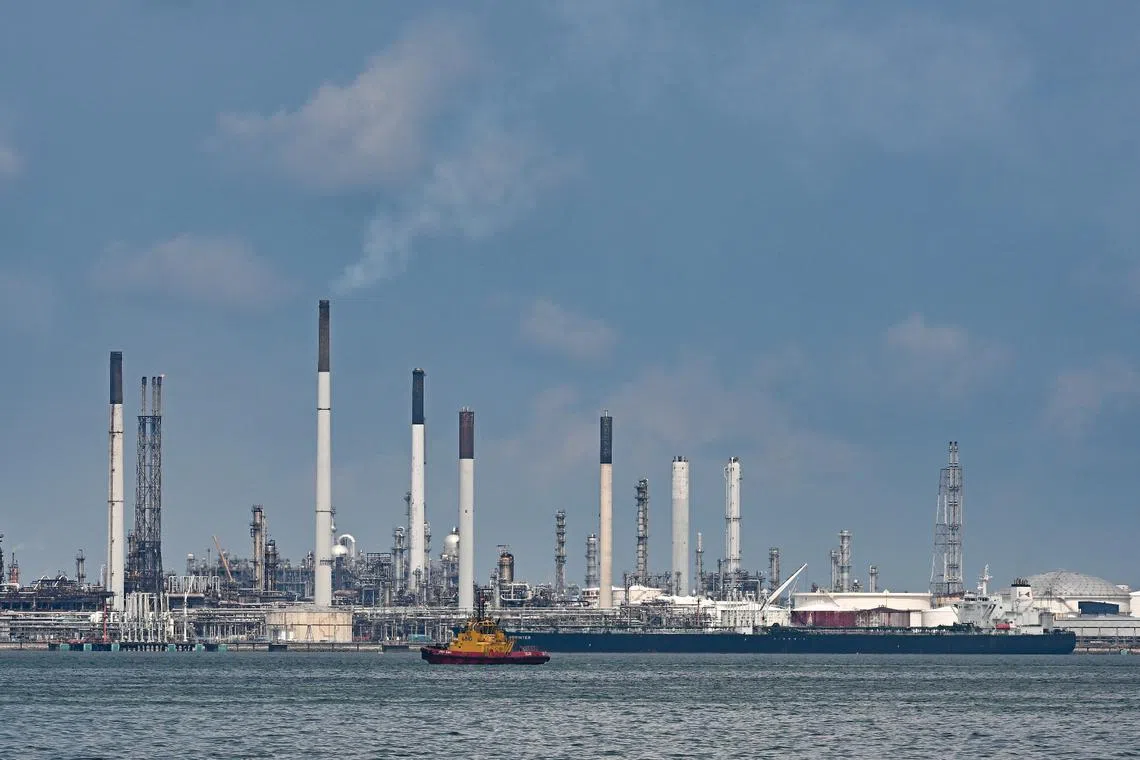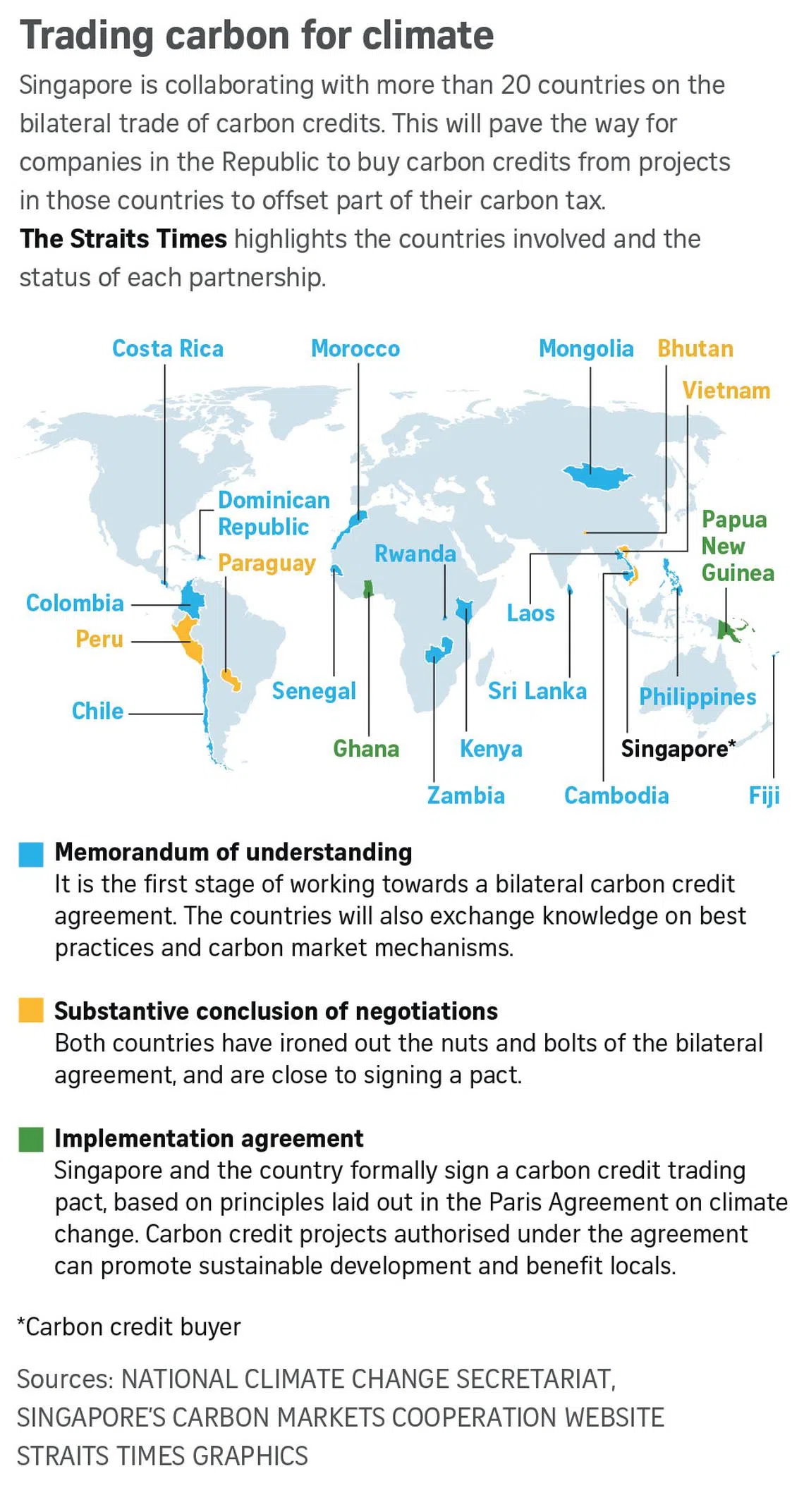S’pore and Peru’s carbon trading agreement reaches advanced stage
Sign up now: Get ST's newsletters delivered to your inbox

Singapore currently has implementation agreements with Papua New Guinea and Ghana, but carbon credits have not been traded yet.
ST PHOTO: LIM YAOHUI
BAKU, Azerbaijan – Peru is set to be among the first few countries that Singapore could buy carbon credits from, with a bilateral agreement on carbon trading reaching the advanced stage.
On the sidelines of the COP29 climate change summit in Azerbaijan on Nov 21, Singapore’s Ministry of Trade and Industry (MTI) announced that both countries have substantively concluded negotiations on carbon credit cooperation.
The next step is to formalise the agreement with a signing, called the implementation agreement.
Singapore currently has implementation agreements with Papua New Guinea and Ghana, but carbon credits have not been traded yet.
Once an implementation agreement is signed, it paves the way for carbon tax-liable companies in Singapore to buy carbon credits from projects in partner countries to offset up to 5 per cent of their taxable emissions.
Peru joins Bhutan, Vietnam and Paraguay in entering this stage where substantive issues on carbon trading have been concluded with Singapore.
This means that a framework to eventually create and transfer carbon credits from Peru to Singapore has been established under the agreement.
“The framework sets out the criteria and processes for the development of carbon credit projects as well as the transfer of carbon credits between both countries,” MTI said in a statement.
The South American nation’s partnership with Singapore on carbon markets began in 2022, with the signing of a memorandum of understanding (MOU).
Bilateral pacts are one way countries can trade in carbon credits under the Paris Agreement.
Singapore is collaborating with more than 20 countries on carbon markets, most of which are at the initial MOU stage.
Being alternative energy-disadvantaged, Singapore has limited options to decarbonise on its own. Buying credits and relying on emissions-cutting measures elsewhere, such as in Peru, will offer Singapore alternative pathways to shrink its carbon footprint.
For Peru, a reforestation carbon project, for example, can bring sustainable development and co-benefits to local communities.
MTI reiterated that Singapore is committed to ensuring the integrity, quality and transparency of carbon markets. This includes implementing robust and independent accounting and preventing the double counting of carbon credits.
Peru’s Deputy Minister for Strategic Development of Natural Resources Raquel Soto said: “Through this agreement, we can access international carbon markets to channel investments into high-quality mitigation projects that support our environmental and economic goals.”
This will also promote innovation and create more local green jobs, she added.
Minister for Sustainability and the Environment Grace Fu said: “When the agreement is signed, we look forward to the private sector utilising this agreement to develop carbon credit projects to actualise concrete environmental outcomes.”
Singapore has been involved in other carbon credit partnerships at COP29.
On Nov 18, the Singapore Sustainable Finance Association inked an agreement with four other carbon market associations in South-east Asia to develop an Asean common carbon framework.
This framework will unlock carbon project opportunities in Asean and promote collaboration to reduce the costs of implementing carbon initiatives, the Bangkok Post reported.
On Nov 19, Singapore and Zambia signed an MOU on carbon trading.
Malaysia is also looking to sign a similar MOU with Singapore in December, the country’s minister of natural resources and environmental sustainability said.




